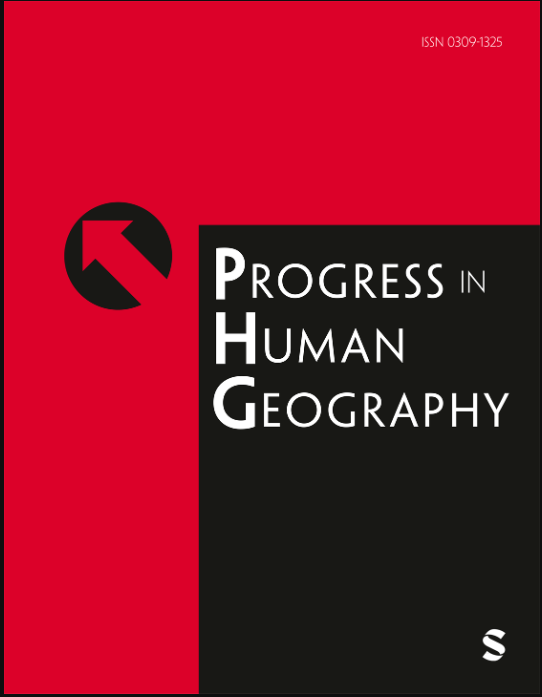人工智能的地理:劳工、监视和行动主义
IF 6.1
1区 社会学
Q1 GEOGRAPHY
引用次数: 0
摘要
本文回顾了人工智能在劳动、监视和行动主义背景下的地理工作,特别关注该学科在与这一新兴主题的关键接触中发展的优势,以及当前的差距。在本书的各个章节中,我们将人工智能定义为一种社会转型,它不能也不应该局限于地理学的一个领域或分支学科,相反,我们认为,这种新兴技术必须被纳入我们学术界所有部分的概念和经验辩论中。总而言之,本文确定了地理学,特别是关键的人文地理学,可以帮助我们更好地理解我们周围世界人工智能的复杂和扩散地理,并为讨论这种颠覆性技术带来多方面的框架。本文章由计算机程序翻译,如有差异,请以英文原文为准。
Geographies of artificial intelligence: Labor, surveillance, and activism
This article reviews geographic work on artificial intelligence in the context of labor, surveillance, and activism, paying particular attention to developing strengths, as well as current gaps, in the discipline's critical engagement with this emerging topic. Across its sections, we frame artificial intelligence as a societal transformation that cannot and should not be contained to one field or subdiscipline within geography, arguing, instead, that this emerging technology must be drawn into conceptual and empirical debates within all parts of our scholarly community. To conclude, the article identifies ways that geography, especially critical human geography, can contribute to better understanding the complicated and proliferating geographies of artificial intelligence in the world around us and bring a multi-faceted framework to discussions of this disruptive technology.
求助全文
通过发布文献求助,成功后即可免费获取论文全文。
去求助
来源期刊

Progress in Human Geography
GEOGRAPHY-
CiteScore
16.40
自引率
7.00%
发文量
56
期刊介绍:
Progress in Human Geography is the peer-review journal of choice for those wanting to know about the state of the art in all areas of research in the field of human geography - philosophical, theoretical, thematic, methodological or empirical. Concerned primarily with critical reviews of current research, PiHG enables a space for debate about questions, concepts and findings of formative influence in human geography.
 求助内容:
求助内容: 应助结果提醒方式:
应助结果提醒方式:


